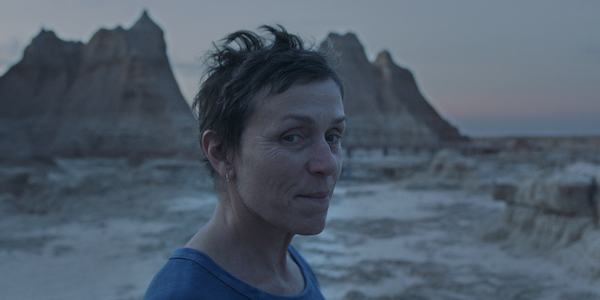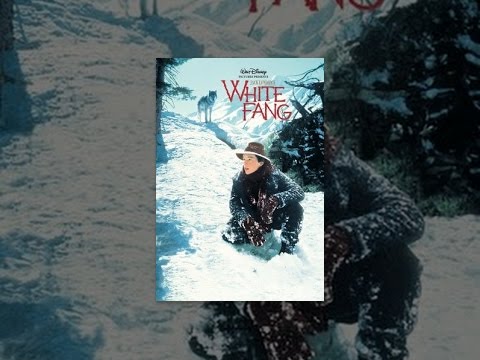TIFF 2020: NOMADLAND – A Stunning Portrait of A Failed American Dream
The first film to premiere almost simultaneously at the Toronto, Venice, New York, and Telluride Film Festivals, Nomadland is a tale centered around Fern (Frances McDormand), a jobless, working-class woman who turns to life as a modern-day nomad who traverses the American Midwest. Written, directed, and edited by the incomparable Chloe Zhao, the much buzzed about film is able to surpass the wildest expectations to become the first true all-around festival standout of the year.
Intimate Portrayals
At its core, the film is an intimate look into the life of Fern, and would simply not work as well as it does without a strong central performance. Thankfully, the two-time Academy-Award winning actress delivers with a performance for the ages. In contrast to her showy and outspoken previous role in Three Billboards Outside Ebbing, Missouri, McDormand‘s performance in Nomadland is one that is much more grounded in the harsh reality of the film. Underneath her minimalistic expressions throughout the majority of the narrative, her nuanced portrayal showcases the presence of pain and emotional uncertainty behind the steadfast image she attempts to propagate unto others. Yet, as the film enters its final stretch, so does her emotional state slowly build up to a heartbreaking finale that ensures her performance is not one that will be forgotten.

Much has to be said about McDormand’s supporting cast as well. Apart from David Strathairn’s turn as Dave, a divorcee who seems to be searching for a life in parallel with that of Fran’s, all the other actors shown on-screen are, in fact, non-actors. A continuation of Chloe Zhao’s affinity for non-actors seen in 2015’s Songs My Brother Taught Me and 2017’s The Rider, Zhao primarily employs real-life modern-day nomads who are living through the situations Fern is into incredibly successful results. Stories that would have otherwise been dismissed or unheard of are placed front and center in this film, finally giving a strong voice to those in Middle America who are still suffering from the aftermath of economic downturns uncompromisingly created by the wealthy, who have long forgotten about their situation since then.
A Natural Canvas
However, many of those moments would not have been as impactful if not for the way in which the sweeping natural backdrops were captured by Zhao and cinematographer Joshua James Richards. Despite the film’s intimate nature, the use of wide shots gives the film an epic sense of scale that is further highlighted by striking sunsets that result in bursts of color touching upon otherwise dreary landscapes.

Zhao’s own editing of this film is yet another thing that only adds to the realism of the film. Her editorial instincts of when to cut between contrasting wider and intimate shots heighten the visceral nature of the picture, and even when she chooses to let the camera linger on longer takes, it results in the viewer being sucked into greater depths than before and keeps one’s eyes glued to the screen. Additionally, the presence of Ludovico Einaudi’s melancholic score is able to bring yet another angle of emotional despair to the film, ensuring that the technical aspects of the film overall are nearly flawless and unforgettable as a whole.
Conclusion: Zhao at Her Best
However, the key to why this film works, and the central reason why this film deserves so much praise, is all due to one name: Chloe Zhao. A relatively new diverse voice in an industry that should be aching for greater representation, the result of her work is one that I truly hope will finally motivate executives to include voices from all walks of life and put them in charge of their ambitious projects. In Nomadland, Zhao expands on the themes and narrative style of her previous works in a way that is somehow able to capitalize and better each and every one of them. She is able to imbue the film with a lyrical atmosphere akin to the works of Terrence Malick.
Featuring some of the best uses of cinema vérité techniques in a narrative film since Robert Altman and John Cassavetes, Zhao perfectly captures an atmosphere of realism unlike any other that could play as a documentary if not for the stunning performance from Frances Mc Dormand. Touching on the heartbreaking failure and lack of achievability of the American dream for a working-class generation, ultimately, Nomadland is a metaphysical and spiritual odyssey that results in a truly transcendent experience, and one of the best films of the year.
Does the multi-festival buzz have you excited to see Nomadland? Let us know in the comments below!
Nomadland will be released in theaters in the US on December 4, 2020, and in the UK on January 1, 2021.
Watch Nomadland
Does content like this matter to you?
Become a Member and support film journalism. Unlock access to all of Film Inquiry`s great articles. Join a community of like-minded readers who are passionate about cinema – get access to our private members Network, give back to independent filmmakers, and more.
Join now!





